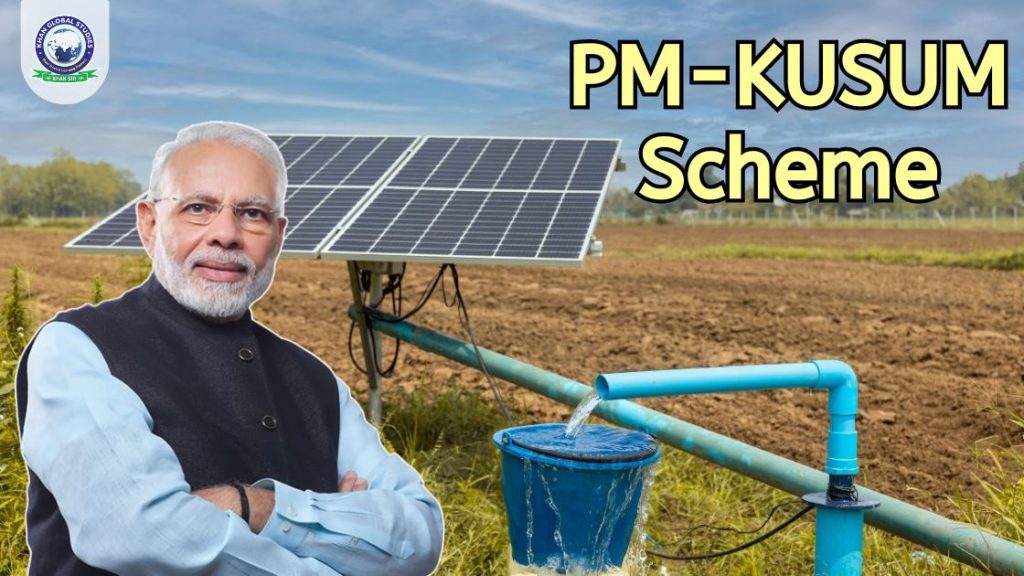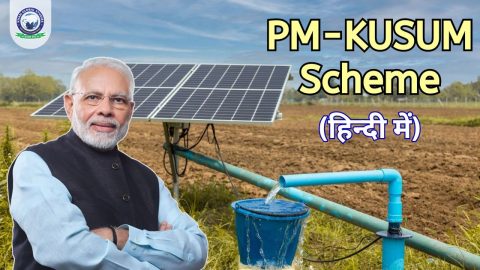The Prime Minister KUSUM Yojana (PM-KUSUM), launched by the Government of India, is a revolutionary initiative aimed at harnessing solar power for the agricultural sector. This ambitious scheme has the potential to transform rural landscapes, empower farmers, and contribute significantly to India’s clean energy goals.
Understanding the PM-KUSUM Scheme
PM-KUSUM is a multifaceted program encompassing three sub-schemes:
- KUSUM-A: This sub-scheme focuses on replacing conventional grid-connected electricity with solar-powered irrigation pumps. Farmers can significantly reduce their electricity bills by replacing traditional pumps and gaining greater control over their irrigation needs.
- KUSUM-B: This sub-scheme promotes the installation of grid-connected solar power plants on individual farmlands. Farmers can generate electricity for their use and sell any surplus back to the grid, earning an additional income stream.
- KUSUM-C: This sub-scheme encourages the development of solar power plants on barren or uncultivated land owned by farmer cooperatives. The generated electricity is then fed into the grid, benefiting the entire community.
Objectives and Benefits of the PM-KUSUM Scheme
PM-KUSUM boasts a multitude of objectives that contribute to both agricultural and environmental progress. Here are some key benefits:
- Reduced Electricity Bills for Farmers: Solar-powered irrigation pumps significantly decrease dependence on expensive grid electricity, leading to substantial cost savings for farmers.
- Enhanced Income Generation: Surplus power generated from individual or cooperative plants can be sold to the grid, providing farmers with a valuable source of additional income.
- Improved Grid Stability: The decentralized nature of solar power plants reduces transmission losses and strengthens the electricity grid, particularly in rural areas.
- Promotion of Clean Energy: By harnessing solar power, PM-KUSUM contributes to India’s renewable energy goals and helps mitigate climate change.
- Creation of Rural Jobs: The scheme fosters the development of a solar industry in rural areas, leading to job creation and economic growth.
Challenges and the Road Ahead
Despite its potential, PM-KUSUM faces certain challenges:
- Initial Investment Costs: The upfront cost of installing solar pumps and power plants can be a barrier for some farmers.
- Awareness and Knowledge Gap: Spreading awareness and providing technical knowledge to farmers about the scheme and its benefits is crucial.
- Land Availability: Identifying suitable land for solar plants, especially in densely cultivated areas, can be a challenge.
Conclusion
PM-KUSUM presents a groundbreaking opportunity to empower farmers, enhance agricultural sustainability, and accelerate India’s clean energy transition. This scheme holds immense promise for shaping a brighter future for the agricultural sector and the environment by addressing the existing challenges and ensuring effective implementation.




